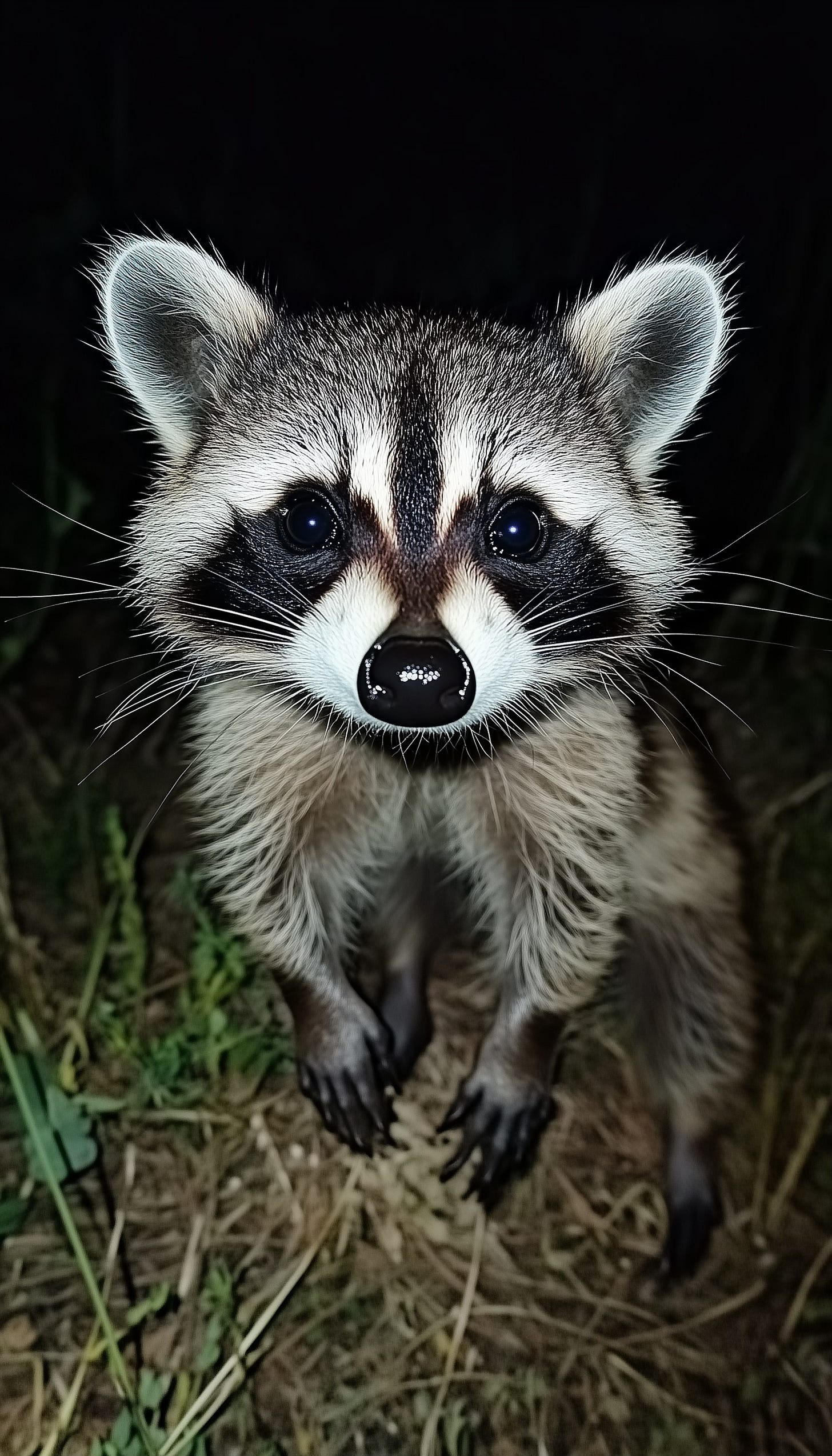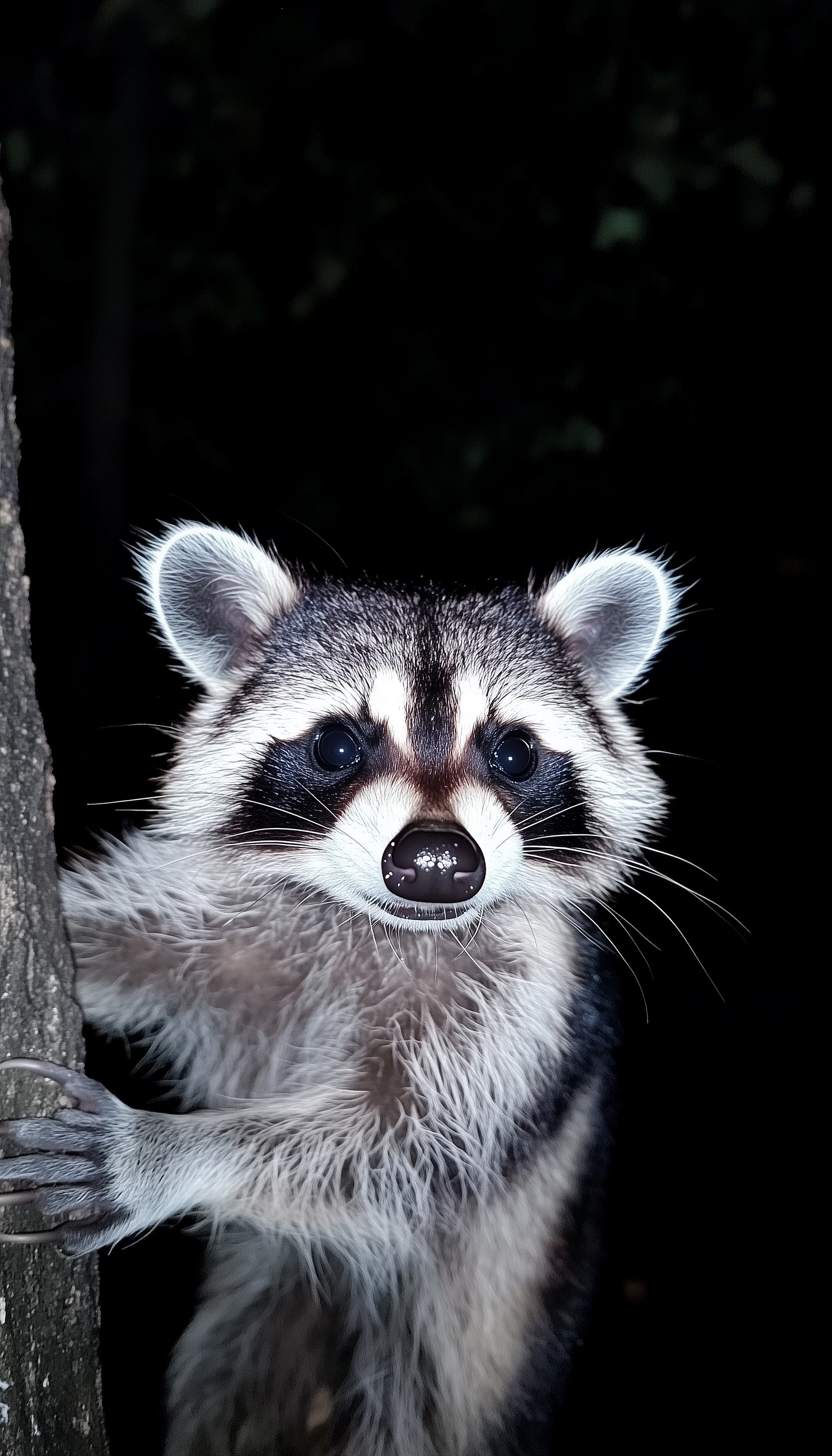Raccoons, with their distinctive masked faces and nimble paws, are often seen as clever, resourceful creatures. While they are frequently spotted in urban areas scavenging for food, these nocturnal mammals have deeper significance in nature, history, and cultural symbolism. Recently, I found myself helping a baby raccoon avoid danger on the road. It was a tender moment; the raccoon, sweet and curious, kept trying to follow me even though I was guiding it to safety. This encounter sparked a deeper interest in understanding the health benefits of raccoons' presence in nature, their impact on culture, and their significance in Native American symbolism.
Health Benefits of Raccoons in Nature
Raccoons play an essential role in ecosystems, and their presence can positively affect human health in surprising ways:
Pest Control: Raccoons help control populations of rodents, insects, and other pests, which can reduce the spread of diseases that affect both humans and crops. By naturally balancing ecosystems, they contribute to the health of agricultural lands and urban gardens alike.
Seed Dispersal: When raccoons forage for fruits and berries, they help disperse seeds through their droppings. This process encourages plant diversity and growth, supporting healthy ecosystems that contribute to cleaner air and a balanced climate.
Promoting Biodiversity: As opportunistic feeders, raccoons' varied diet prevents any one species from dominating an area. This behavior helps maintain a balanced ecosystem, which is crucial for sustaining healthy soil and water quality.
Indicators of Environmental Health: Raccoons are sensitive to changes in their environment. The state of raccoon populations can be a signal of the overall health of local ecosystems. Monitoring their behavior and population trends can provide valuable insights for environmental conservation efforts.
Connecting People to Nature: Raccoons' curious and playful behaviors can be captivating to watch. Encounters with wildlife like raccoons offer meaningful opportunities to connect with nature, which has been shown to reduce stress, promote mental well-being, and encourage environmental stewardship.
Raccoons in Culture and History
Raccoons have made their way into cultural stories and folklore around the world. Their adaptability and cunning nature have earned them a reputation for being both tricksters and problem-solvers. In American culture, they are often associated with curiosity and cleverness. Raccoons appear in literature, cartoons, and even as sports mascots, embodying resourcefulness and survival.
St. Louis, where I’m from, holds a special historical connection to raccoons due to its role in the fur trade. During the 18th and early 19th centuries, the city was a significant hub for the North American fur trade, especially under French influence. French settlers, including the "coureurs des bois" (runners of the woods), established strong and respectful trading relationships with local Native American tribes. Raccoon pelts were highly valued for their warmth and durability, and St. Louis' location along the Mississippi River made it a key point for transporting furs like raccoon, beaver, and mink. These early trade practices not only boosted the city's economic development but also fostered cultural exchanges, influencing St. Louis' diverse traditions today.
Native American Symbolism of Raccoons
For many Native American tribes, the raccoon holds symbolic meaning. Often seen as a trickster figure, the raccoon represents adaptability, resourcefulness, and the ability to solve problems in unconventional ways. Some tribes believe raccoons are shape-shifters, capable of changing their form or disguising themselves to achieve their goals.
The raccoon's "mask" is seen as a symbol of transformation, suggesting that sometimes it is necessary to take on different roles or perspectives to overcome challenges. Additionally, the raccoon's ability to wash its food symbolizes cleansing, renewal, and the preparation for new experiences.
Conclusion
Helping that baby raccoon reminded me of how interconnected we are with the wildlife around us. These animals are more than just occasional backyard visitors; they contribute to our natural world in profound ways. By understanding the health benefits raccoons bring to the ecosystem, their cultural significance, and the deep symbolism they hold in Native American traditions, we can appreciate the vital role they play and recognize our shared responsibility to protect and coexist with them.
Raccoons, in their clever and adaptive ways, teach us valuable lessons about resilience, transformation, and finding balance in a world that is constantly changing.







